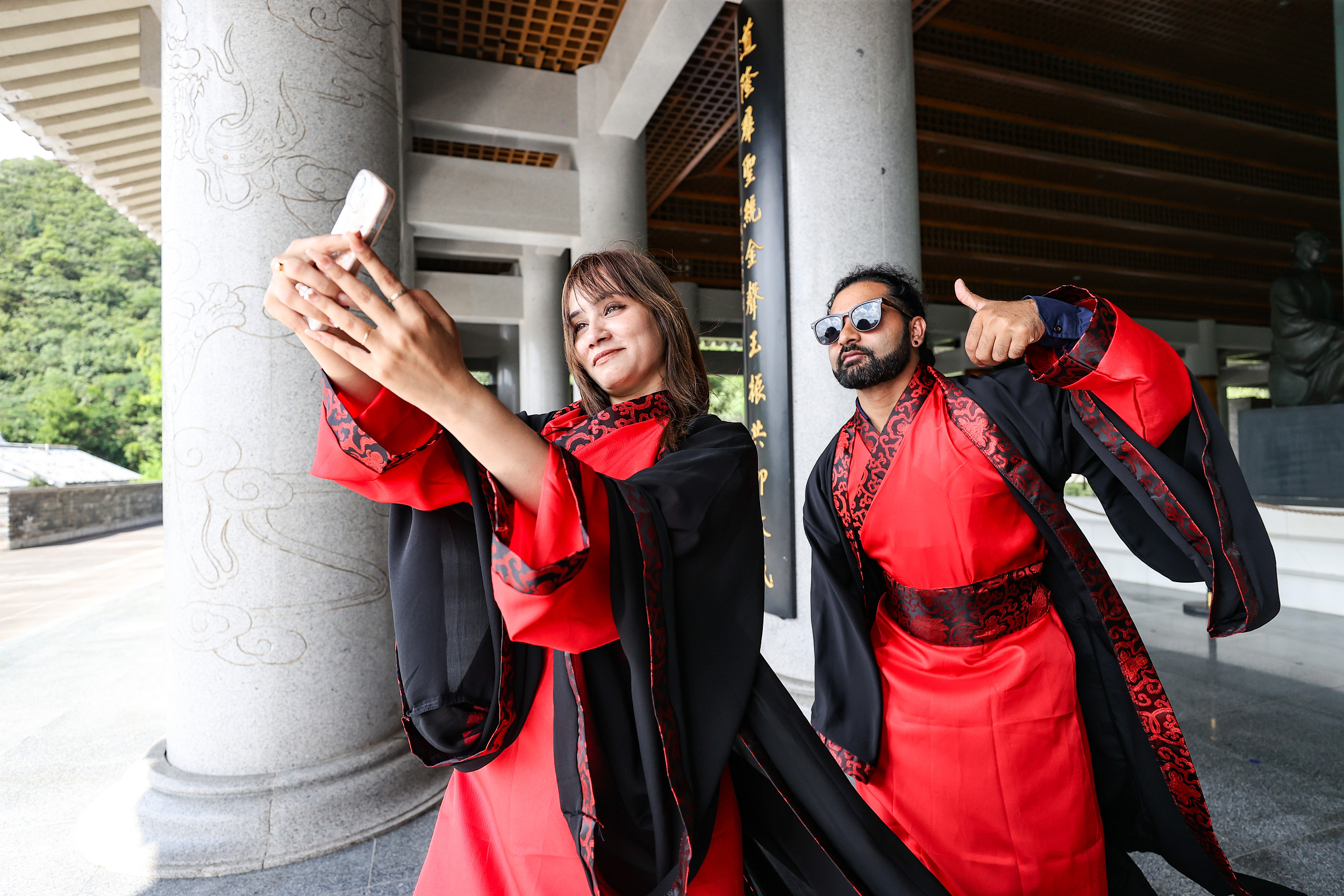Fostering Integration: Sinology in Latin America

The first Congress of Latin American Sinologists, held in Argentina in July, marked the growing interest in Chinese studies across the region.
Over 50 Latin American and Chinese scholars gathered to discuss cultural integration and open development with a focus on the development of sinology in Latin America and regional cooperation. The conference highlighted the increasing curiosity about China and its rapid development, driven by the closer ties between China and Latin American countries.
Increasing attention on sinology and Chinese studies
The congress, organized under the framework of the World Sinologists Conference and guided by the Center for Language Education and Cooperation of the Chinese Ministry of Education, was co-hosted by Beijing Language and Culture University (BLCU)'s World Sinology Center and several Argentine universities. Discussions centered around Chinese language teaching in Spanish-speaking regions, the Belt and Road Initiative, and Sino-Latin American cultural dialogues.
China's ambassador to Argentina, Wang Wei, emphasized the conference's role in elevating cultural exchanges between China and Latin America to a new level.
Xu Baofeng, director of the Belt and Road Research Institute at BLCU, noted the enthusiastic participation of scholars from over 20 Latin American countries.
Xu said this enthusiasm reflected a broader trend: Latin America has become a fertile ground for the growth of sinology and Chinese studies. The development has expanded beyond academia to include cultural exchanges and economic cooperation, indicating a profound and multifaceted interest in understanding China.
Role of Chinese traditional thought
An essential aspect of this burgeoning interest is the influence of Chinese traditional thought, such as dialecticism and the doctrine of the mean.
These philosophical concepts offer valuable perspectives for interpreting China's development model and its approach to global cooperation.
Dialectical thinking, which emphasizes the interplay of opposites and the dynamic nature of change, aligns well with China's strategies for economic and social development. The doctrine of the mean, advocating balance and moderation, can provide insights into China's diplomatic strategies and its efforts to maintain stability while pursuing growth.
Sinologists' expanding horizons
The rapid development of Chinese studies in Latin America is underscored by the research at the Institute of Latin American Studies, Chinese Academy of Social Sciences.
This research indicates a surge in institutions and scholars dedicated to China studies, with a new generation of researchers diversifying their focus and methodologies. The creation of networks for Chinese studies further exemplifies this trend, fostering a collaborative environment for academic and cultural exchanges.
Ana Gabriela Fernández, director of the Uruguayan branch of the Latin American Social Sciences Institute, remarked on the increasing attention given to Sinology, calling the congress a testament to this growth.
Norberto Consani, a scholar from Argentina's National University of La Plata, reminisced about the early days of Chinese studies in the region, contrasting it with the current widespread interest and significant advancements in both the quality and quantity of research.
Broader implications for Sino-Latin American ties
The conference also addressed the broader implications of Chinese studies for Sino-Latin American relations.
Zhou Zhiwei, deputy director of the International Relations Office at the Institute of Latin American Studies, highlighted three key areas of focus for Latin American scholars: China's modernization experience, its foreign policy and global governance perspectives, and its cultural foundations.
These areas offer valuable insights into how Latin American countries can learn from China's development strategies and leverage these lessons for their own growth.
The establishment of the Latin American Sinologists Council, announced during the conference, aims to enhance communication and collaboration among scholars in the region.
This council will facilitate deeper academic exchanges and support the growth of Sinology and Chinese studies in Latin America. Additionally, initiatives such as establishing a Sinology research center and a master's program in China policy studies in Argentina further demonstrate the commitment to fostering a comprehensive understanding of China.






